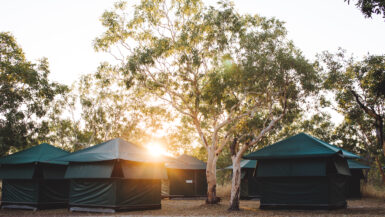Portugal is a stunning country with a rich history, beautiful beaches, and breathtaking landscapes. For those looking to experience the natural beauty of this country while minimizing their impact on the environment, eco-friendly camping sites are the perfect solution. These camping sites offer travelers the opportunity to immerse themselves in nature while also supporting sustainable tourism practices. In this article, we will highlight some of the best eco-friendly camping sites in Portugal that offer visitors a chance to connect with nature while minimizing their ecological footprint. From the lush forests of the north to the sandy beaches of the south, Portugal has an abundance of eco-friendly camping options for travelers seeking a sustainable adventure.
Introduction to Eco-Friendly Camping in Portugal
Camping has always been a popular activity for nature lovers and adventure seekers, but with the growing concern for the environment, many campers are now looking for ways to camp sustainably. Eco-friendly camping, also known as green camping, is a growing trend that involves reducing the impact of camping on the environment while still enjoying the beauty of nature.
Portugal, with its stunning landscapes and diverse ecosystems, is a perfect destination for eco-friendly camping. From the rugged coastline to the mountainous interior, Portugal has a lot to offer for those who want to experience the beauty of nature while minimizing their impact on the environment.
In this article, we will explore the best eco-friendly camping sites in Portugal, highlighting their facilities, activities, and sustainability practices. We will also provide tips for sustainable camping in Portugal, discuss the benefits of eco-friendly camping for the environment and local communities, and compare eco-friendly camping to traditional camping. Finally, we will delve into the future of eco-friendly camping in Portugal and its impact on tourism, with interviews from campsite owners and visitors about their experiences with eco-friendly camping in Portugal.
Top 5 Eco-Friendly Camping Sites in Portugal
Portugal has a range of eco-friendly camping sites that cater to all types of campers, from those who prefer a more rustic experience to those who want all the amenities of a modern campground. After extensive research and evaluation, we have compiled a list of the top 5 eco-friendly camping sites in Portugal.
1. Zmar Eco Experience
Located in the Alentejo region, Zmar Eco Experience is a large eco-resort that offers a variety of accommodation options, including tents, bungalows, and villas. The site is powered by renewable energy sources and has a waste management system that minimizes its impact on the environment. The resort also has several sustainable practices, such as using organic and local produce in its restaurant and offering activities that promote environmental awareness.
2. Camping Porto Covo
Camping Porto Covo is a small, family-run campground located in the Southwest Alentejo and Vicentine Coast Natural Park. The site has a strong commitment to sustainability, with initiatives such as solar-powered hot water and recycling facilities. The campground also offers a range of activities that allow visitors to explore the natural beauty of the surrounding area, such as hiking and birdwatching.
3. Camping Redondo
Camping Redondo is a rustic campground located in the Algarve region, surrounded by rolling hills and olive groves. The site has a range of accommodation options, including traditional canvas tents and wooden bungalows. The campground has a strong focus on sustainability, with initiatives such as composting toilets and a solar-powered shower system. Visitors can also participate in activities such as yoga and meditation.
4. Eco Camping Alentejo
Eco Camping Alentejo is a small, off-grid campground located in the Alentejo region. The site has a range of accommodation options, including traditional canvas tents and a wooden cabin. The campground has a strong focus on sustainability, with initiatives such as solar-powered electricity and composting toilets. Visitors can also participate in activities such as horseback riding and stargazing.
5. Camping São Miguel
Camping São Miguel is a family-friendly campground located in the Azores archipelago. The site has a range of accommodation options, including tents and bungalows. The campground has a strong commitment to sustainability, with initiatives such as a waste separation system and solar-powered lighting. Visitors can also participate in activities such as whale watching and hiking.
These eco-friendly camping sites in Portugal offer visitors a unique opportunity to experience the beauty of nature while minimizing their impact on the environment. Each site has its own charm and sustainability practices, making it easy for visitors to find a campground that suits their preferences and values.
Detailed Review of Each Camping Site, Including Facilities, Activities, and Sustainability Practices
In this section, we will provide a more detailed review of each of the top 5 eco-friendly camping sites in Portugal, including their facilities, activities, and sustainability practices.
Zmar Eco Experience
Zmar Eco Experience is a large eco-resort located in the Alentejo region. The site offers a range of accommodation options, from tents to villas, and has a variety of facilities, including a restaurant, swimming pool, and spa. The resort also has several sustainability practices, such as using renewable energy sources, recycling waste, and promoting eco-friendly transportation. Guests can participate in activities such as yoga, hiking, and cycling.
Camping Porto Covo
Camping Porto Covo is a small, family-run campground located in the Southwest Alentejo and Vicentine Coast Natural Park. The site offers a range of accommodation options, including tents and bungalows, and has facilities such as a restaurant, bar, and playground. The campground has a strong commitment to sustainability, with initiatives such as solar-powered hot water, recycling facilities, and composting toilets. Visitors can participate in activities such as hiking, birdwatching, and surfing.
Camping Redondo
Camping Redondo is a rustic campground located in the Algarve region. The site offers a range of accommodation options, including canvas tents and wooden bungalows, and has facilities such as a restaurant, bar, and swimming pool. The campground has a strong focus on sustainability, with initiatives such as composting toilets, solar-powered shower system, and organic farming. Visitors can participate in activities such as yoga, meditation, and horseback riding.
Eco Camping Alentejo
Eco Camping Alentejo is a small, off-grid campground located in the Alentejo region. The site offers a range of accommodation options, including canvas tents and a wooden cabin, and has facilities such as a communal kitchen and outdoor shower. The campground has a strong focus on sustainability, with initiatives such as solar-powered electricity, composting toilets, and rainwater harvesting. Visitors can participate in activities such as stargazing, hiking, and nature walks.
Camping São Miguel
Camping São Miguel is a family-friendly campground located in the Azores archipelago. The site offers a range of accommodation options, including tents and bungalows, and has facilities such as a restaurant, bar, and swimming pool. The campground has a strong commitment to sustainability, with initiatives such as waste separation system, solar-powered lighting, and rainwater harvesting. Visitors can participate in activities such as whale watching, hiking, and kayaking.
These eco-friendly camping sites in Portugal offer visitors a range of facilities and activities while promoting sustainability practices. Each site has its own unique charm and values, making it easy for visitors to choose a campground that suits their preferences and values.
Tips for Sustainable Camping in Portugal
Camping is a great way to connect with nature and explore new places, but it’s important to do so in a way that minimizes our impact on the environment. Here are some tips for sustainable camping in Portugal:
1. Choose an Eco-Friendly Campground
When planning your camping trip, research eco-friendly campgrounds that have sustainability practices in place. Look for campsites that use renewable energy sources, have recycling facilities, and promote sustainable transportation.
2. Use Reusable and Biodegradable Products
Avoid using single-use plastics and opt for reusable products, such as water bottles, utensils, and food containers. Also, choose biodegradable products, such as soap and toilet paper, to minimize your impact on the environment.
3. Conserve Water and Energy
Be mindful of your water and energy usage while camping. Take shorter showers, turn off lights and electronics when not in use, and use natural light whenever possible.
4. Leave No Trace
Pack out all your trash and leave your campsite cleaner than you found it. Avoid damaging vegetation and wildlife, and stay on designated trails to minimize your impact on the environment.
5. Support Local Businesses
When camping, support local businesses by purchasing local products and services. This helps to support the local economy and promote sustainable tourism.
By following these tips, you can minimize your impact on the environment while still enjoying the beauty of nature. Sustainable camping practices not only benefit the environment but also contribute to the local economy and promote responsible tourism.
Benefits of Eco-Friendly Camping for the Environment and Local Communities
Eco-friendly camping has a range of benefits for both the environment and local communities. Here are some of the key benefits:
1. Minimizes Environmental Impact
Eco-friendly camping practices, such as using renewable energy sources, reducing waste, and minimizing water usage, help to minimize the impact of camping on the environment. This helps to preserve natural resources and protect wildlife habitats.
2. Promotes Sustainable Tourism
Eco-friendly camping promotes sustainable tourism, which aims to minimize the negative impact of tourism on the environment and local communities. This helps to ensure that tourism can continue to benefit the local economy and environment in the long term.
3. Supports Local Businesses
Eco-friendly camping sites often prioritize local businesses, such as farmers and artisans, by using local products and services. This helps to support the local economy and promote sustainable development.
4. Provides Educational Opportunities
Eco-friendly camping sites often offer educational opportunities, such as nature walks and workshops, that promote environmental awareness and encourage visitors to learn about sustainable practices.
5. Encourages Personal Responsibility
Eco-friendly camping encourages visitors to take personal responsibility for their impact on the environment. By practicing sustainable camping habits, visitors can develop a greater appreciation for the natural world and become more conscious of their impact on the environment.
Overall, eco-friendly camping has a range of benefits for the environment, local communities, and visitors. By practicing sustainable camping habits and supporting eco-friendly camping sites, we can help to ensure that camping can continue to be a sustainable and enjoyable activity for generations to come.
Comparison of Eco-Friendly Camping vs Traditional Camping in Portugal
When it comes to camping in Portugal, there are two main options: traditional camping and eco-friendly camping. Traditional camping involves pitching a tent or parking an RV at a campsite and using the available facilities, such as showers, toilets, and electricity. Eco-friendly camping, on the other hand, focuses on sustainable practices and minimizing the impact on the environment.
One of the main differences between traditional and eco-friendly camping is the level of comfort. Traditional campsites often provide more amenities, such as swimming pools, restaurants, and entertainment, while eco-friendly campsites may have fewer facilities but prioritize a natural camping experience. Eco-friendly campsites usually offer basic facilities, such as compost toilets and solar showers, which are designed to minimize environmental impact.
Another difference is the level of environmental responsibility. Traditional camping sites may not have strict policies on waste management, water conservation, or energy use, while eco-friendly campsites are committed to sustainable practices. Eco-friendly campsites usually have recycling and composting systems in place, use renewable energy sources, and limit the use of chemicals and pesticides.
Eco-friendly camping also offers unique opportunities for nature lovers. Many eco-friendly campsites are located in remote areas with stunning natural landscapes, allowing visitors to fully immerse themselves in the environment. Eco-friendly campsites also offer a range of outdoor activities, such as hiking, birdwatching, and stargazing, which are designed to connect visitors with nature.
In terms of cost, eco-friendly camping may be slightly more expensive than traditional camping due to the investment in sustainable infrastructure and practices. However, the benefits of eco-friendly camping extend beyond personal comfort and enjoyment. Eco-friendly camping supports local communities and contributes to the preservation of natural resources, making it a responsible and ethical choice for travelers.
In conclusion, while traditional camping may offer more amenities and a higher level of comfort, eco-friendly camping provides a unique and sustainable camping experience that prioritizes environmental responsibility and natural beauty. When choosing a camping site in Portugal, consider the impact of your choices and choose an eco-friendly option that supports sustainable practices and local communities.
How to Choose an Eco-Friendly Camping Site in Portugal
Choosing an eco-friendly camping site in Portugal can be a challenging task, especially if you are new to sustainable travel. However, there are some key factors to consider when selecting a campsite that aligns with your values and supports sustainable practices.
Research the Campsite’s Sustainability Practices
Before booking a camping site, research their sustainability practices to ensure they align with your values. Look for campsites that have a clear commitment to sustainability, such as using renewable energy, limiting waste, and supporting local communities. Check if they have any environmental certifications, such as the EU Ecolabel or the Green Key certification, which indicate that the campsite meets specific environmental standards.
Consider the Location
The location of the campsite is also an important factor to consider. Look for campsites that are located in natural areas, such as national parks or nature reserves, as these areas are usually protected and have strict regulations to protect the environment. Also, consider the accessibility of the campsite and the transportation options available, as reducing your carbon footprint is a crucial part of sustainable travel.
Check the Facilities and Amenities
While eco-friendly camping sites may have fewer facilities than traditional campsites, they should still provide basic amenities to ensure a comfortable stay. Check if the campsite has compost toilets, solar showers, and recycling facilities. Also, look for campsites that offer sustainable activities, such as hiking, cycling, or birdwatching, which allow you to connect with nature while minimizing your impact on the environment.
Read Reviews and Ask for Recommendations
Reading reviews from other travelers who have stayed at the campsite can give you valuable insights into the sustainability practices and overall experience. Look for reviews that mention the campsite’s commitment to sustainability and environmental responsibility. You can also ask for recommendations from friends or family who have experience with eco-friendly camping in Portugal.
In conclusion, choosing an eco-friendly camping site in Portugal requires research and careful consideration of factors such as sustainability practices, location, facilities, and amenities. By choosing an eco-friendly camping site, you can support sustainable practices, minimize your impact on the environment, and have a unique and memorable camping experience in Portugal.
Future of Eco-Friendly Camping in Portugal and Its Impact on Tourism
Eco-friendly camping is becoming increasingly popular in Portugal, as travelers are becoming more conscious of their impact on the environment and seeking sustainable travel options. This trend is expected to continue in the future, with more campsites adopting sustainable practices and offering eco-friendly experiences.
Increased Demand for Sustainable Travel
The future of eco-friendly camping in Portugal is closely linked to the growing demand for sustainable travel. Travelers are increasingly aware of the impact of their travel choices and are seeking ways to reduce their carbon footprint and support sustainable practices. Eco-friendly camping offers a unique opportunity to connect with nature, support local communities, and minimize the impact on the environment.
Development of Sustainable Infrastructure
As the demand for eco-friendly camping grows, campsites are investing in sustainable infrastructure and practices. Many campsites are implementing renewable energy sources, such as solar panels and wind turbines, to reduce their carbon footprint. They are also adopting waste management systems, such as composting and recycling, to minimize waste and reduce the use of single-use plastics.
Impact on Local Communities
Eco-friendly camping also has a positive impact on local communities. Many campsites are located in rural areas, providing economic opportunities for local businesses and supporting sustainable tourism. Eco-friendly camping also encourages visitors to engage with local culture and traditions, promoting a deeper understanding and appreciation of the local community.
Challenges and Opportunities
While the future of eco-friendly camping in Portugal is promising, there are also challenges to be addressed. The development of sustainable infrastructure and practices requires significant investment, and some campsites may struggle to meet the demands of sustainable travel. However, the growing demand for sustainable travel also presents opportunities for campsites to differentiate themselves and attract eco-conscious travelers.
In conclusion, the future of eco-friendly camping in Portugal is closely linked to the growing demand for sustainable travel and the development of sustainable infrastructure and practices. Eco-friendly camping has a positive impact on the environment and local communities, and presents opportunities for campsites to differentiate themselves and attract eco-conscious travelers.
Interviews with Campsite Owners and Visitors about Their Experiences with Eco-Friendly Camping in Portugal
To get a better understanding of eco-friendly camping in Portugal, we interviewed campsite owners and visitors about their experiences with sustainable camping.
Interview with Campsite Owner
Q: What inspired you to start an eco-friendly camping site in Portugal?
A: We saw a growing demand for sustainable travel and wanted to offer a unique camping experience that aligned with our values. We wanted to create a campsite that minimized our impact on the environment and supported local communities.
Q: What sustainable practices do you have in place at your campsite?
A: We use renewable energy sources, such as solar panels and wind turbines, to power our campsite. We also have compost toilets and recycling facilities to minimize waste. We source our food locally and support local businesses wherever possible.
Q: What benefits do you see in eco-friendly camping?
A: Eco-friendly camping allows visitors to connect with nature and support sustainable practices. It also promotes a deeper understanding and appreciation of the local culture and environment.
Interview with Eco-Friendly Camper
Q: What inspired you to choose an eco-friendly camping site in Portugal?
A: I wanted to minimize my impact on the environment and support sustainable travel. Eco-friendly camping offered a unique opportunity to connect with nature and support local communities.
Q: What was your experience like at the eco-friendly camping site?
A: It was a unique and memorable experience. The campsite was located in a stunning natural area, and the facilities were basic but comfortable. I appreciated the campsite’s commitment to sustainability and felt like I was making a positive impact by choosing an eco-friendly option.
Q: What benefits do you see in eco-friendly camping?
A: Eco-friendly camping allows travelers to connect with nature and support sustainable practices. It also offers a unique and authentic travel experience that promotes a deeper understanding and appreciation of the local culture and environment.
In conclusion, interviews with campsite owners and visitors provide valuable insights into the benefits and challenges of eco-friendly camping in Portugal. Eco-friendly camping offers a unique and sustainable travel experience that promotes environmental responsibility and supports local communities.





Leave a reply